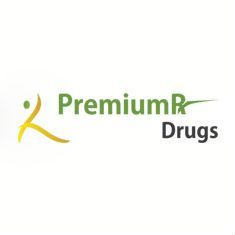Cardivas 3.13mg
Available Dosages
| SKU | 190 |
|---|---|
| Generic For | Coreg |
| Strength | 3.125mg |
| Active Ingredient | Carvedilol |
| Pack Size | Qty | Price Per Pill or Unit | Price | Cart | |
|---|---|---|---|---|---|
| 30 Tablet/s | US$ 0.15 | US$ 4.50 | |||
|
|||||
| 60 Tablet/s | US$ 0.15 | US$ 9.00 | |||
|
|||||
| 90 Tablet/s | US$ 0.13 | US$ 12.0011%US$ 13.50 | |||
|
|||||
Cardivas 3.125 mg is an adjunctive therapy for treating patients with moderate to severe stable chronic heart failure. It is also used to manage hypertension (high blood pressure) and prophylactically treat stable angina. The medicine's active ingredient is Carvedilol, which is categorized under the class of medications known as beta blockers. These medications are believed to slow the heart rate, causing the heart to beat normally and reducing blood pressure.
Cardivas 3.13mg is contraindicated in the following conditions/situations.
- Hypersensitivity to Carvedilol or any other ingredients in the medicine.
- Fluid retention
- Obstructive airway disease (breathing problems because of narrowing or obstruction of the airways in conditions like asthma, COPD, and chronic bronchitis), liver dysfunction, unstable decompensated heart failure
- Prinzmetal's angina (Chest pain that happens when an individual is resting)
- Sick sinus syndrome
- Severe hypotension ( too low blood pressure)
- Metabolic acidosis
- Severe bradycardia (heart rate slower than normal)
- Cardiogenic shock
- Alzheimer's s disease
- Alcoholism/drug abuse
- Severe peripheral arterial circulatory disturbances
- Concomitant intravenous therapy with verapamil or diltiazem
- Galactosaemia, Lactose insufficiency, or glucose/galactose malabsorption syndrome
It is not known whether the medication is excreted in breast milk. Therefore, breastfeeding is not recommended while receiving Cardivas 3.125mg. No research studies have been conducted on the effect of medicine on a patient's fitness to drive a vehicle or operate complex machinery.
Furthermore, because of the medicine's reactions, like dizziness and tiredness, a patient's ability to drive or operate complex machines may be affected. This particularly happens during the initial days of the treatment and when used in combination with alcohol. There are insufficient studies on the effects of medicine on pregnancy. Therefore, it should not be used during pregnancy unless the potential benefits outweigh the risks. Cardivas is not meant for use in children below 18 years of age as there is insufficient data available on the effectiveness and safety of this medicine. Older adults may be more susceptible to the effects of this medicine and should be carefully monitored.
Certain medications may interfere with the working of Carvedilol. These may include cimetidine, digoxin, clonidine, diltiazem, verapamil, anti-diabetic drugs, cyclosporine, asthma medications, aspirin, and other pain relivers, fluoxetine, and other medicines to help lower blood pressure, etc. There may be other medications that may interact with Cardivas; consult your doctor if you have any doubts regarding drug interactions.
Like all medications, this medicine can contribute to unwanted effects, although not everybody who uses it gets it. If any of the following occurs, discontinue treatment and visit the emergency department at your nearest hospital:
- An allergic reaction (skin rash or hives; swelling of the skin on the lips, face, or neck, which ultimately leads to trouble breathing
- Inflammatory skin eruptions are a serious condition accompanied by blistering of the skin, eyes, mouth, and genitals.
These are serious but rare side effects. A patient may require immediate medical attention or hospitalization. Adverse effects are less likely to affect patients being treated for angina or hypertension than patients being treated for heart failure.
Side effects that occur in patients being treated for heart failure:
Very common ones include dizziness, headache, low blood pressure, lack of muscle strength and weakness, heart failure, lungs disease, depression, reduced blood cells, increased blood cells, slow heartbeat, problems with your vision, changes in blood sugar levels, abnormal accumulation of fluid in body causing swelling of fingers, ankles, feet or penis, etc.
Side effects that occur in patients being treated for angina or hypertension include breathing problems, dizziness, tiredness, dry eye, tiredness, slow heart rate, asthma, stomach pain, a rapid drop of blood pressure, mild headache, loose stools, feeling unwell, fluid accumulation in lungs, and urinary tract infections, indigestion, pain in hand and feet, pain in tummy, fluid accumulation in lungs, a rapid drop of blood pressure when standing up, feeling unwell, generalized pain, etc.
It is always suggested that medicine be used only under the supervision of a healthcare provider. Cardivas 3.125mg is available for oral use. The tablets should be swallowed, preferably with a glass full of water, without crushing, breaking, or chewing the tablet. It should be taken with food as this helps slow down absorption and reduces the incidence of low blood pressure upon standing.
Liver or kidney problems: Doctors usually prescribe a low dose to patients with liver or kidney problems.












Login
Sign Up
Login
Sign Up